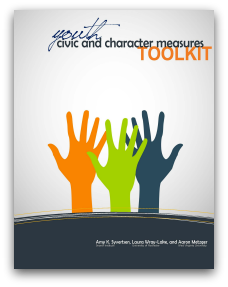News Archive

January, 2018 - Final Wave of Data Collection - Our final year of longitudinal data collection will begin early in 2018 with our school partners in California, Minnesota, and West Virginia. We are eager to invite all previous participants to take the final survey, and to invite new 4th and 5th graders into the project. Like in previous years, participants will receive a small cash incentive (Grades 4-5: $1, Grades 6-8: $3, Grades 9-12: $5) and be entered into a drawing to win an Apple iPad mini at each school. When possible, students will be invited to take the survey at school. Students who we are unable to connect with at school will be contacted to take the survey on their own outside of the school day. If you have questions or want a copy of the permission form mailed, please call (304) 293-3996. You can also give permission online quickly (in English or Spanish), by simply visiting this website: goo.gl/DkTKbm

August, 2017 - Character Strengths and OST Activities - Our team, lead by graduate student Jennifer Shubert, recently had a paper accepted for publication in the Journal of Character Education. Using a person-oriented Q-sort methodology, we examined profiles of character strengths in children and adolescents. Through this process we identified three character profiles: Future-Minded Leaders viewed themselves as leaders who were purposeful and future-minded; these youth engaged in sports, volunteering, and academic clubs. Joyful Givers reported high joy, generosity, and forgiveness, and often engaged in sports and civic activities. Creative Leaders shared strengths of leadership and creativity, and commonly engaged in sports and leadership groups. Thrift, awe, and humility were rarely identified as top strengths. Our results provide a descriptive snapshot of how character strengths coalesce in childhood and adolescence and illustrate a useful methodology for measuring character strengths across diverse ages. Our results also provide insights into the ways out-of-school time (OST) activities are associated with character profiles. You can read the full paper here.
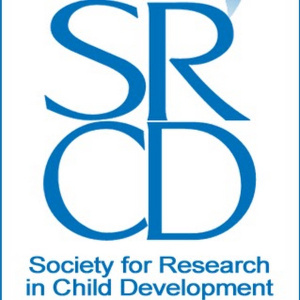
April, 2017 - Society for Research on Child Development Conference - Our team continues to share the results of The Roots of Engaged Citizenship Project broadly. This month we traveled to Austin, TX to share early findings about what we’re learning about the impact of discrimination on the civic engagement of Latinx youth, trends in social responsibility, and interesting age differences in how character strengths emerge. Copies of the conference presentations can be found here.

February, 2017 - Wave 4 Data Collection Underway! - Our fourth year of survey data collection for the The Roots of Engaged Citizenship Project is currently underway in California, West Virginia, and Minnesota. Parents - please be on the lookout for consent forms! Unless you provided permission last year, we need your signed permission again in order to invite your child to participate. All survey data is confidential. Your child will receive $1 (elementary), $3 (middle school), or $5 (high school) and be entered into a raffle to win an iPad mini at their school. If you have questions or want a copy of the permission form mailed, please call (304) 293-3996. You can also give permission online quickly (in English or Spanish), by simply visiting this website: http://tinyurl.com/J4sxpay

November, 2016 - National Science Foundation Grant Awarded - In Fall 2016, West Virginia University, Search Institute, and UCLA were awarded a joint grant from the National Science Foundation to support the ongoing research and development work of The Roots of Engaged Citizenship Project. This work will fund two additional years of our school research partnerships, as well as a year of intensive analysis and dissemination work.

October, 2016 - It's Election Season and Our Children are Watching - Dr. Laura Wray-Lake wrote a guest blog for Info About Kids with practical tips for how parents can engage their children in this year’s election. To read the full post, visit: http://infoaboutkids.org/blog/its-election-season-and-our-children-are-watching/
August, 2016 – Testing Multidimensional Models of Youth Civic Engagement – Despite recognition that youth civic engagement is multidimensional, different modeling approaches are rarely compared or tested for measurement invariance. Using a diverse sample of 2,467 elementary, middle, and high school-aged youth, we measured eight dimensions of civic engagement: social responsibility values, informal helping, political beliefs, civic skills, environmental behavior, volunteering, voting intentions, and news consumption. We compared correlated unidimensional factors, higher-order factor, and bifactor models and tested for measurement invariance and latent mean differences by age. The correlated unidimensional factors model best fit the data, yet higher-order and bifactor models fit adequately. Metric and scalar invariance was found across models. Latent means varied depending on the dimension of civic engagement and the multidimensional model examined. Findings favored the correlated unidimensional factors model; implications of each model are discussed. This study informs future research on youth civic engagement and has broad relevance for any developmental scientist studying a multidimensional construct.
For a full copy of this manuscript published in Applied Developmental Science, please click here.
April, 2016 – Society for Research on Adolescence Conference – The Roots of Engaged Citizenship Project team presented four project-related papers and posters at the SRA conference in Baltimore, MD. The findings from our project continue to attract interest and spark deep conversations about how civic engagement develops in childhood and adolescence. Copies of the conference presentations can be found here.
December, 2015 – Youth Civic and Character Measures Toolkit – The fields of youth civic and character development are no longer in their infancy. Yet, there remains an urgent cry for robust measures that tap the development of civic engagement and character strengths. These measures need to be reliable, valid, theoretically consistent, and appropriate for youth in middle childhood and adolescence. After all, good data starts with good measures.
The Roots of Engaged Citizenship is interested in understanding the role developmental competencies (e.g., perspective taking), character strengths, and ecological assets (e.g., relational support) in childhood and adolescence play in nurturing engaged citizenship. Foundational to this effort, we developed and rigorously tested a set of developmental measures that tap young people’s civic engagement and character strengths in Grades 4-12.
You can download a copy of the Youth Civic and Character Measures Toolkit which includes detailed information on these measures and their psychometric properties here.

October, 2015 – How Children Understand Civic Actions – The development of civically engaged citizens is vital for democratic societies. Although several studies have explored children and adolescents’ conceptualizations of civic engagement, less is known about youths’ understanding of the individual skills and attributes best-suited for civic action. The current study utilized a Q-sort methodology to explore the types of character strengths children and adolescents (n =87; Mage= 13, 9–19, 52% female) assigned to people who engage in different types of civic activities. Participants sorted 12 character strengths (amazed, creative, forgiving, future-minded, generous, grateful, humble, joyful, leader, purposeful, responsible, thrifty) into five categories ranging from “most like” to “least like” based on their perceptions of individuals engaged in four distinct civic activities: volunteering, voting, protesting, and engaging in environmental or conservation behaviors. Youth differentially applied certain character strengths to individuals engaged in distinct civic activities but also identified a set of character strengths (future-minded, leader, purposeful, and responsible) as core to multiple forms of civic engagement. Results provide new insights into youths’ budding conceptualization of the individual characteristics, attributes, and motivations which undergird different forms of civic action. Qualitative analysis of youths’ justifications for their rankings provided additional nuance into their developing understanding of civic actions.
For a full copy of this manuscript published in the Journal of Adolescent Research, please click here.
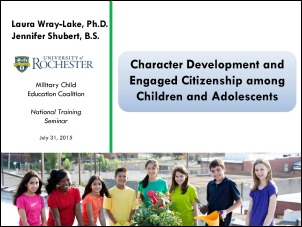
July, 2015 – Character and Military Families – In July, members of our team were invited to speak about our research at the Military Child Education Coalition’s National Training Seminar in Washington, DC. Dr. Laura Wray-Lake and graduate research assistant Jennifer Shubert presented to a lively interactive group of about 80 educators and practitioners who serve military families. We shared three main takeaway points from our character research. First, we discussed the how civic engagement builds character strengths like leadership, perseverance, and future orientation. Second, we identified simple straightforward strategies adults can implement to enhance youth civic engagement including modeling and discussing sociopolitical issues (like the unfair treatment of subgroups or important community issues). Third, we talked about how these findings are relevant to all youth but have a special application to military families because military parents are by definition highly engaged citizens and they likely pass down values, skills, discuss civic issues, and model civic behaviors, creating a rich civic environment that could set the stage for positive development. Find out more by viewing our presentation slides here.
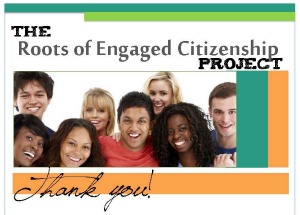
June, 2015 – A Closer Look at the Data – Analysis of our Wave 1 data from 2,475 youth ages 8 to 19, reveal several interesting findings. For example, 40% youth in our sample report they have too much schoolwork or would rather do other things than participate in out-of-school organized activities. Yet, we know that the developmental experiences young people have in extracurriculars is an important pathway to civic engagement. To learn more about our study findings, check out our parent newsletter here.
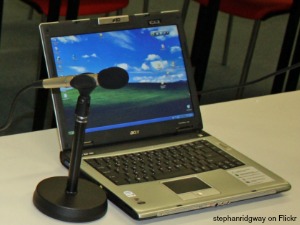
May, 2015 – New Webinar on Character Skills & Civic Engagement in Young People – How do you raise young people who positively contribute to their communities, help others, and participate in solving social issues? Findings from the Roots of Engaged Citizenship Project suggest good citizenship is rooted in young people’s character strengths, developmental competencies, and supportive contexts. Join us for this free webinar to find out more about the project and get concrete ways to support the civic engagement of young people. Register now >>
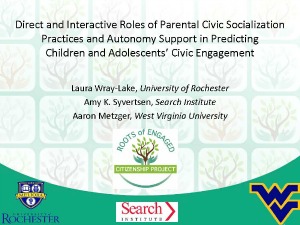
March, 2015 – Society for Research on Child Development Conference – The Roots of Engaged Citizenship research team presented outcomes from our study at the biennial meeting of the Society for Research on Child Development. Dr. Laura Wray-Lake chaired a symposium where she presented early findings demonstrating the importance different facets of parenting and youth civic engagement, while Jennifer Shubert, a graduate research assistant on the project, presented findings linking dimensions of youth character, socio-political values, and civic behavior. These presentations spurred a great deal of conversation among civic development scholars. Below is a brief description of the presentations:
Direct and Interactive Roles of Parental Civic Socialization Practices and Autonomy Support in Predicting Children and Adolescents’ Civic Engagement
Authors: Drs. Laura Wray-Lake, Amy Syvertsen, and Aaron Metzger
This study explored links between two civic parenting behaviors and youth civic activity and values. Both parents’ political discussion and modeling of civic behavior were important predictors of multiple indices of youth civic engagement. Additionally, findings indicated that a supportive relationship between parents and youth strengthened the effects of parents’ civic modeling and communication.
Character Strengths and Values: Theoretical Integrations and Empirical Tests
Authors: Jennifer C. Shubert (graduate research assistant) and Drs. Laura Wray-Lake, Aaron Metzger, and Amy K. Syvertsen
This study examined youth character strengths and socio-political values as predictors of civic engagement. Findings indicated that character strengths and socio-political values work independently in predicting youth prosocial and political engagement.
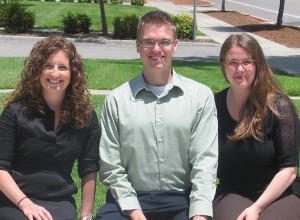
February, 2015 – Let’s Stay in Touch – The Roots of Engaged Citizenship Team has received funding to continue our study! In spring 2015, we will be inviting previous youth participants to complete a second survey about their strengths and experiences. To ensure that we can stay connected to participants and families, we invite one parenting adult from each family to complete a contact update form available here.

December, 2014 - Stimulating Conversation in the Field - A recently published report in the International Journal of Developmental Science highlights key themes from the Youth Civic Engagement Preconference co-organized by the Roots of Engaged Citizenship team in March 2014 in Austin, TX. The meeting primarily focused on theory and practice related to youth sociopolitical development and pointed to next steps in terms of conceptualizing, measuring, and promoting critical consciousness, empowerment, and political engagement among youth. Read the full report here.

April, 2014 - ATTENTION Parents! - The parenting adults of youth who participated in the Roots of Engaged Citizenship survey in-school have been mailed or emailed (based on your indicated preference) the parent survey. As a thank you for completing the survey, each parent will receive $25. Please complete the survey right away! If you have questions, please email our team at info@civicroots.org.
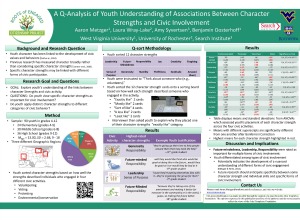
March, 2014 - Society for Research on Adolescence Conference - The Roots of Engaged Citizenship research team had an amazing few days in Austin, TX sharing the findings from our study as part of the Society for Research on Adolescence conference. Below is an overview of the work we shared. If you would like to see slides from these presentations, click here.
Developmental Correlates of Everyday Environmental Actions among Youth
Lead Author: Dr. Laura Wray-Lake, Paper
Applying a developmental perspective, this study examines the role of character and supportive contexts in adolescents’ everyday environmental behaviors, and we also investigate links between environmental behaviors and developmental competencies.
Adolescents’ Perspectives on the Intersection of Citizen and Self
Lead Author: Dr. Amy Syvertsen, Paper
This study examines the intersection of youths’ self-reported character strength assessments using Q-sort methodology with their independent, open-ended descriptions of what it means to be a “good” citizen.
A Q-analysis of Youth Understanding of Associations Between Character Strengths and Civic Involvement
Lead Author: Dr. Aaron Metzger, Poster
Using a Q-sort methodology, this study examined age and gender differences in the types of character strengths youth applied to hypothetical individuals engaged in various civic activities: Voting, volunteering, protesting, and environmental/conservation activities.
Character Strengths in the “Stream of Life”: The Process of Developing Measures for Young People
Lead Author: Maura Shramko, Poster
Using three sequential phases of data collection, this paper explores the process of developing items and scales for the measurement of four key character strengths for children and adolescents: leadership, gratitude, future-mindedness, and purpose.

November, 2013 - Data Collection in Full Swing! - Our teams in West Virginia and Minnesota are knee-deep in forms and surveys, and we couldn't be more excited! Many students have said that they enjoyed taking the survey, and some of the school staff are eager to see the results. Of course, there are challenges along the way, but we're pleased with how the data collection process is going. We realize that it's the help and support of teachers that make our project possible—thank you, teachers!

October, 2013 - Surveys from Sunny Southern California - We had an exciting whirlwind of visits to five schools in Southern California this month. Over 700 students in 4th through 12th grades took our survey. More data collection is planned in the SoCal high school for the coming weeks. We had many fun interactions with teachers and students, and we also learned some tips about giving the survey that we passed along to the other sites. We shipped (many!) boxes of surveys to our West Virginia team, who will oversee the next phase of checking and entering data. A special thank you to the student participants in Southern California! Parents in SoCal, keep a lookout for the parent survey, which will be coming to you in a few months.
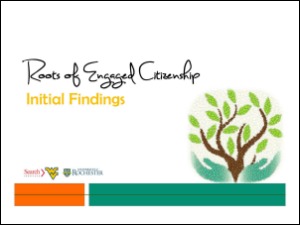
September, 2013 - Initial Findings Released - As we get ready to collect survey data from students across the country, the Roots of Engaged Citizenship team is excited to share some initial findings from our qualitative interviews.
We had the opportunity last fall to sit down with 90 students (30 each from California, Minnesota, and West Virginia) to talk about their involvement, thoughts about, and experiences in school and in their communities. The Roots of Engaged Citizenship Project: Initial Findings report summarizes our first analyses of these qualitative interviews, including what character strengths young people identify with. For example, we found that nearly 80 percent of youth identified themselves as leaders, but few youth see themselves as purposeful. We also found that youth were quick to name a variety of informal ways they help others at school, but they had more limited experience helping others in their community.
The quantitative survey we are conducting this fall will allow us to further investigate how young people’s character strengths, developmental competencies, and the support they experience across contexts relate to civic engagement. To download a full copy of the report, click here.

June, 2013 - World Congress on Positive Psychology - We’re headed back to California in a few weeks to attend the International Positive Psychology Association conference in sunny Los Angeles. While at the conference, we plan to share findings from the semi-structured interviews we conducted with youth last fall. These initial findings emphasize age-differences in youth’s understanding of the links between individual character strengths and environmental/conservation activities. We’re thrilled to tell our IPPA colleagues about this exciting research!
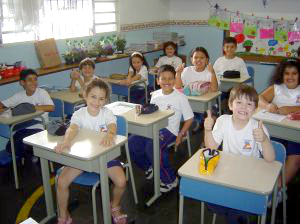
May, 2013 - Survey Time in California - Before the schools slip into the quieter tempo of summer, we’re planning to make a quick visit to pilot test our youth survey focused on themes of civic participation and character strengths. On our agenda are three southern California schools: an elementary school, a middle school, and a high school. The purpose of this pilot is to do a practice run of the survey on a smaller group of students and get some initial insights into civic engagement and character across ages. Once the data is collected, we’ll spend the rest of the summer exploring new findings.

April, 2013 - Getting Feedback - We are in the process of developing a survey for students in Grades 4-12 for fall 2013 to help us learn more about young people’s ideas and experiences related to civic engagement. In advance of the full rollout, we asked elementary, middle, and high school students to put on their “research hats” and give us feedback about the clarity of our questions. This cognitive interview process is a really important step in creating a survey that is understandable and relatable for students with different reading, comprehension, demographic, and geographic backgrounds.
Like when you write a rough draft of a report for school, we started by writing a rough draft of our survey questions. Then, we asked young people in different grade levels to test drive the survey and give us feedback on what works and what doesn’t. All around, we got really helpful suggestions from students who tried out the survey, and now it’s time to work on making this survey better. Thanks to contributions from students, we will have a better questionnaire that will allow us to better understand character and civic development, come fall 2013.
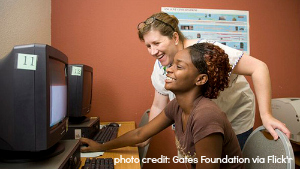
November, 2012 - Let the Storytelling Begin! - This month we’ll sit down, one-on-one with 90 youth (ages 9 to 18) in California, Minnesota, and West Virginia to hear about the ways they contribute to their schools and communities. The insightful stories and ideas that come from these stories will shape our understanding of the roots of civic engagement in childhood and adolescence!



